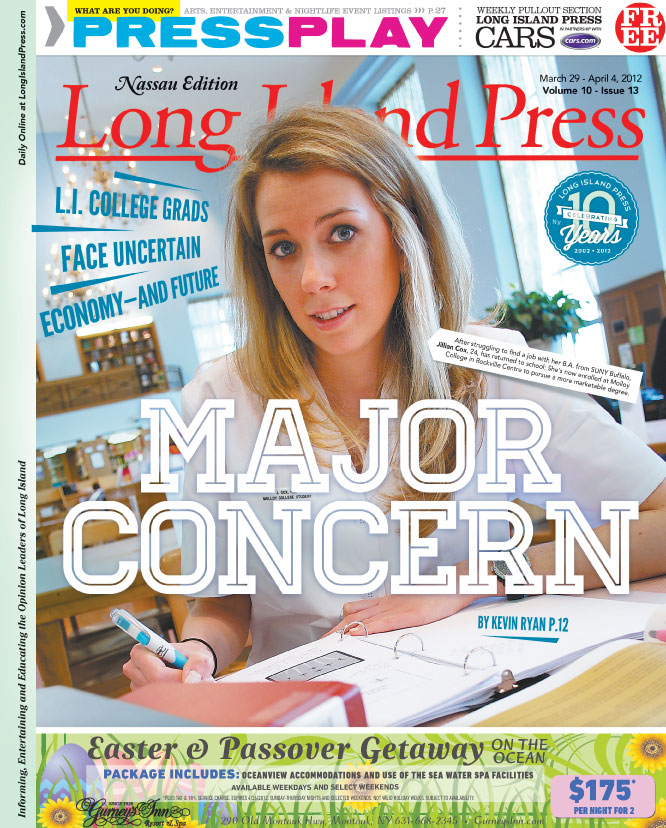President Barack Obama’s Affordable Care Act will not fully go into effect until 2014. Until then, many Americans find themselves without health insurance, ranging from the unemployed to newly hired employees to recent college graduates.
The Consolidated Omnibus Budget Reconciliation Act (COBRA) is a commonly used federal service that offers workers and their families who lose health benefits the option of continuing their previous group health benefits. These benefits are provided for a limited period of time under specific circumstances, such as voluntary or involuntary job loss, reduction in hours worked, transition between jobs, death, divorce and other life events. Many recent college grads use COBRA, as coverage under their parents’ insurance plans often end with graduation.
Qualified individuals, however, may be required to pay the entire premium for COBRA coverage, up to 102 percent of the plan’s cost. For many, paying hundreds or thousands a month for health coverage is not a luxury they can afford.
Deanna Nappo of West Islip graduated from Adelphi University in May 2010. Since then, she has not had health insurance. If she enrolls for coverage under her father’s COBRA plan, Nappo tells the Press, it would cost her thousands of dollars monthly just to keep her current health insurance.
“When you come out of college and you make no money, there’s no money to spend on healthcare,” she explains. “There’s a chance that you can go an entire year without even having to see a doctor. Do you want to pay $5,000 on the slim chance that you might need one?”
For the past year, Nappo says she’s upped her intake of orange juice and vitamins in an attempt to ward off ill health. When she did get sick, a visit to a local clinic cost her $180. Most of the time, Nappo has opted out of seeking medical attention. When she was recently in an auto accident that totaled her car, Nappo had to refuse medical attention from emergency workers for fear of cost.
“It stinks that you have to take a back seat to your own personal health care,” she says.
Nappo’s not alone. Stony Brook University Medical Center treated 24,317 outpatients and 2,423 inpatients without insurance coverage in 2010, according to Lauren Sheprow, of its Office of Media Relations. Although the situation may look bleak, there are options for those who are unable to afford health insurance.
Family Health Plus and Child Health Plus are public health insurance programs run by the U.S. Department of Health for patients who do not have insurance yet have incomes too high for them to qualify for Medicaid.

Nassau University Medical Center, or NuHealth, which offers the NuCare service for uninsured patients.
Nassau University Medical Center, or NuHealth, is a Long Island health care organization that operates the Nassau University Medical Center and the A. Holly Patterson Extended Care Facility. Within the NuHealth System is a care management and health education service for uninsured patients, called NuCare.
Uninsured patients who enroll in NuCare are issued a membership card, given an easy-to-understand health information book, assigned a care provider and given a physical. The organization then connects them with programs that provide medical education and pharmaceutical assistance.
“The idea is to manage the care of the uninsured as if they were insured, thereby preventing illness and reducing, ultimately, the cost to the system,” explains NuHealth System’s President and CEO Arthur A. Gianelli.
He adds that through NuHealth, low- or no cost-outpatient medicine can be obtained by the uninsured through the Indigent Drug Program, Sample MD and a 340 B prescription drug partnership with Walgreens. Approximately 54 percent of these patients are on Medicaid.
Many hospitals also have financial aid policies for those who do not qualify for Medicaid but who still need assistance. Local hospitals, such as Stony Brook and North Shore-LIJ have financial aid plans whereby the amount charged to a patient is based on a sliding scale of the patient’s income.
“We recognize tough economic times and our sliding pay scale goes up to 500 percent of the federal poverty level,” says Allison McGuire, VP for North Shore LIJ’s Office of Community Health and Public Policy. “The state requires up to 300 percent. We go beyond state requirement because we recognize the cost of living in the area.”





